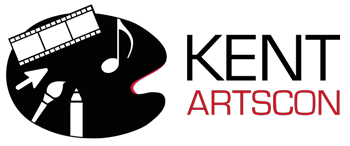Ildiko Solti is an actor-director, researcher and lecturer, former Shakespeare Research Fellow at Kingston University, London. She trained in Dramatic Arts at Macalester College, St Paul, MN, USA. Having returned to Hungary, she obtained her MA in Shakespeare Studies at Eotvos Lorand University and was Artistic Director of an English language theatre company, The Phoenix, in Budapest. In 1999 she moved to London where she has been teaching and conducting research and experiment in performance, focusing on Elizabethan/Jacobean working theatre reconstructions through the method of research through practice in performance (PaR). She holds a PhD in Performing Arts from Middlesex University, London. Ildiko is currently working on a book on the catalytic role of the Globe Theatre project in performance theory, acting and Shakespeare Studies.
“Imagine a place unlike any other” – the Globe Theatre as an engine of connections
Dr Ildiko Solti
The Globe Theatre can be regarded as a bridge in many respects. As a reconstructed building, it connects past and present. One of its main attractions is the time-travel sensation that the visitor can experience as they enter this full-scale replica, getting an instinctive feel for the effect that a very similar environment may have had on Shakespeare and his contemporaries. It also bridges the divide between text and performance, making explicit the many processes that need to be followed if the words on the page are to take on life on the stage with an actual audience. The Globe, as theatres like it, also creates a bridge between actor and audience – in the daylight of performance, there is a direct personal bond that is built between them that makes this type of theatre unique.
However, there is yet another bridge built by performances in Globe-type theatres which makes it a radically different kind of experience. It is what Kiernan Ryan calls the “futurity” of the plays, that is, the intuited relationship between who we are and who we can be, created by the imaginative action of the play. In the visible playhouse, the audience are visible not only to the actor but to each other as well, creating a constant environment of community around the action, which Ian Mackintosh terms an “actor-audience-audience” relationship. It is through the visceral bonds created by this instant, ad hoc community that the “futurity” of our aspirations and potential becomes a felt reality.
